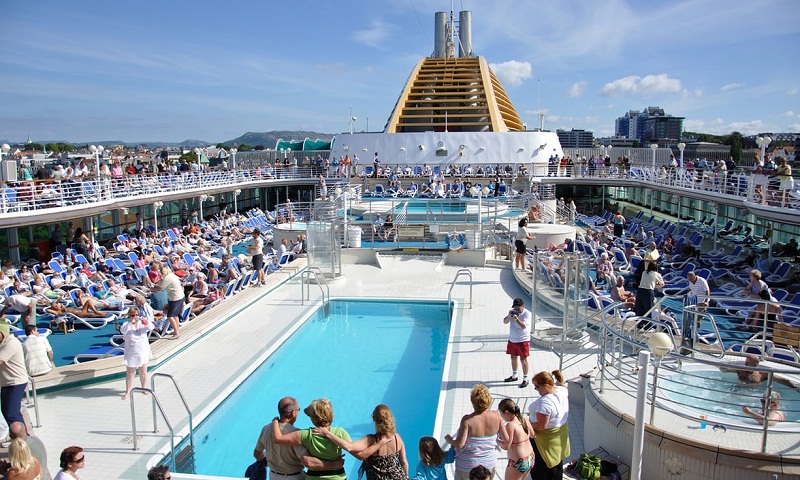Air on board cruise ships ‘is twice as bad as at Piccadilly Circus’

A C4 Dispatches investigation reveals tonight how ultra-fine particles emitted by cruise liners’ engines are worrying both medical scientists and environmentalists. Passengers on cruise ships could be exposing themselves to dangerous levels of pollution, according to an investigation by Channel 4’s Dispatches team that found some public areas on the ships’ decks were more polluted than the world’s worst-affected cities. The undercover investigation, which will be broadcast tonight at 8pm, focused on the levels of “ultra-fine particles” found in the air on and around cruise ships, from the fuel the ships’ engines burn. These particles are so small – around a thousandth of the width of a human hair – that they can enter the bloodstream via the lungs. More than 1.9 million people from the UK travel on a cruise each year and there is growing concern among the scientific community about the health risks. Dispatches used a P-Trak ultrafine particle counter to measure the ultra-fine particulates suspended in the air on board P&O Cruises’ ship Oceana. The Oceana is more than 250 metres long, 15 storeys high and can carry more than 2,000 passengers. The device found 84,000 ultra-fine particulates per cubic centimetre on the deck downwind of, and directly next to, the Oceana’s funnels. That’s more than double the amount found at London’s Piccadilly Circus, where the number of ultra-fine particulates per cubic centimetre was 38,400. Speaking to the Guardian, Dr Matthew Loxham, a specialist in air pollution at the University of Southampton, said these were the levels of pollution you would expect to find in cities such as Delhi or Shanghai. As for the health risks, there is, he says, cause for concern. “From a scientific point of view, we know that pollution causes adverse health effects even in the short term,” he said. “On a ship deck, you’re exposed to higher levels of pollution so you may get symptons such as runny nose, cough, dry eyes or a higher risk of asthma attacks. For those that are pre-disposed, there may be a higher risk of stroke or heart attack.” However he added that it is difficult to quantify the increase in risk for individual passengers. “If you had a large enough number of people, you would be likely to see a quantifiable increase,” he said. “But it’s difficult to say with individuals. Asthmatics, particularly, might find it harder to breath, need their medication more, or find the air triggers an asthma attack.”

